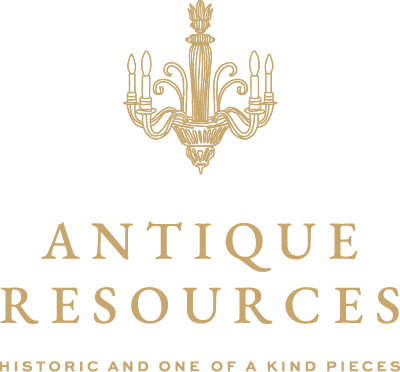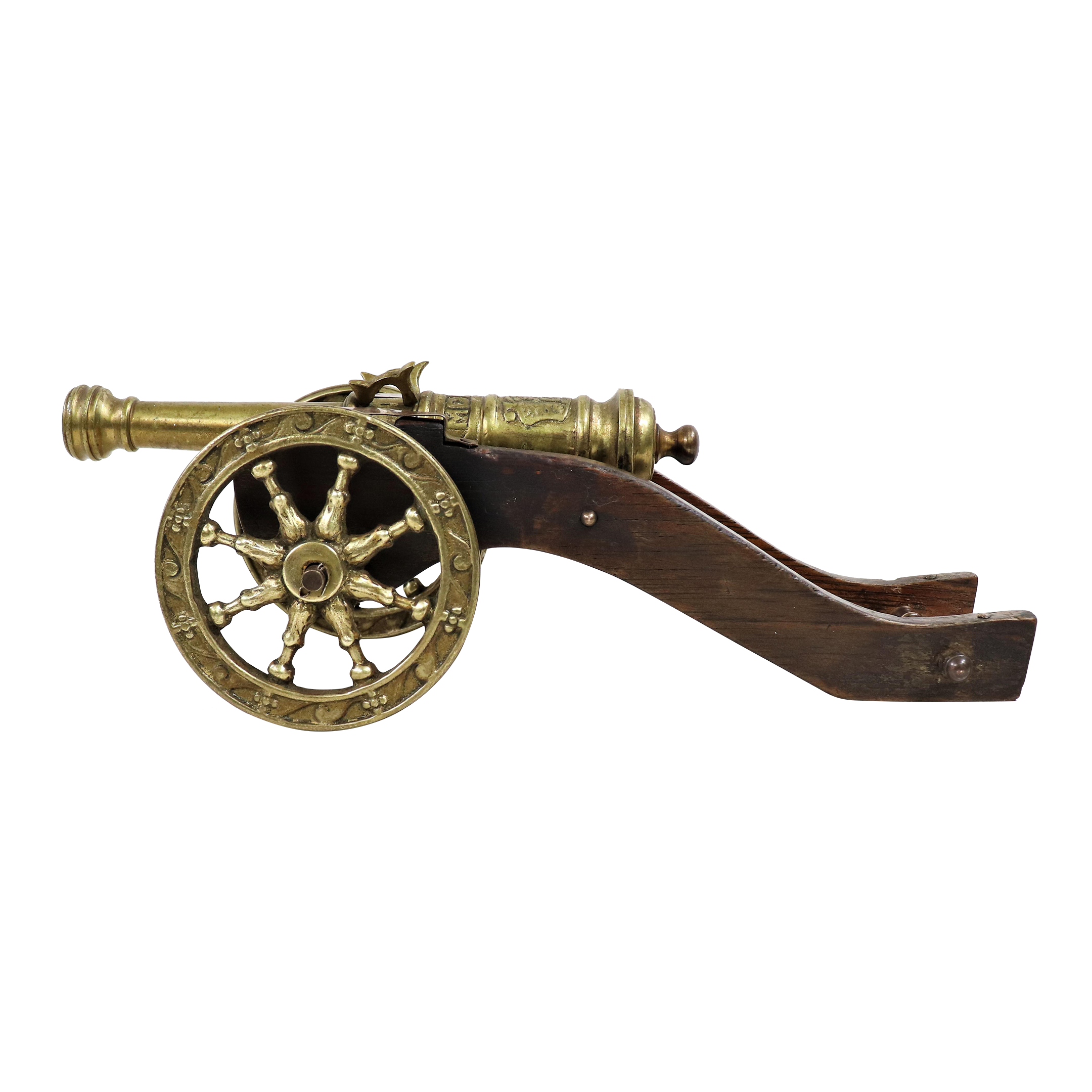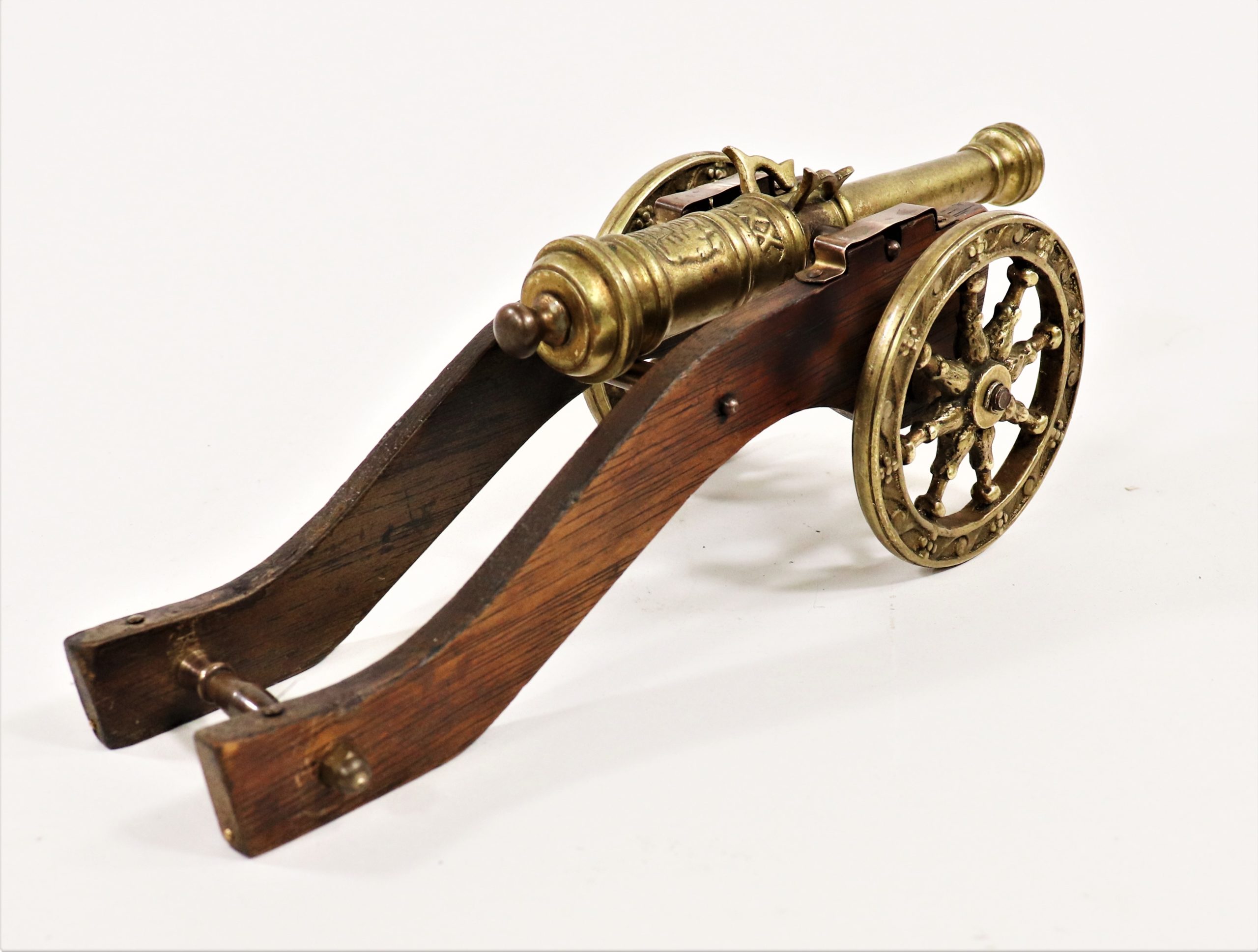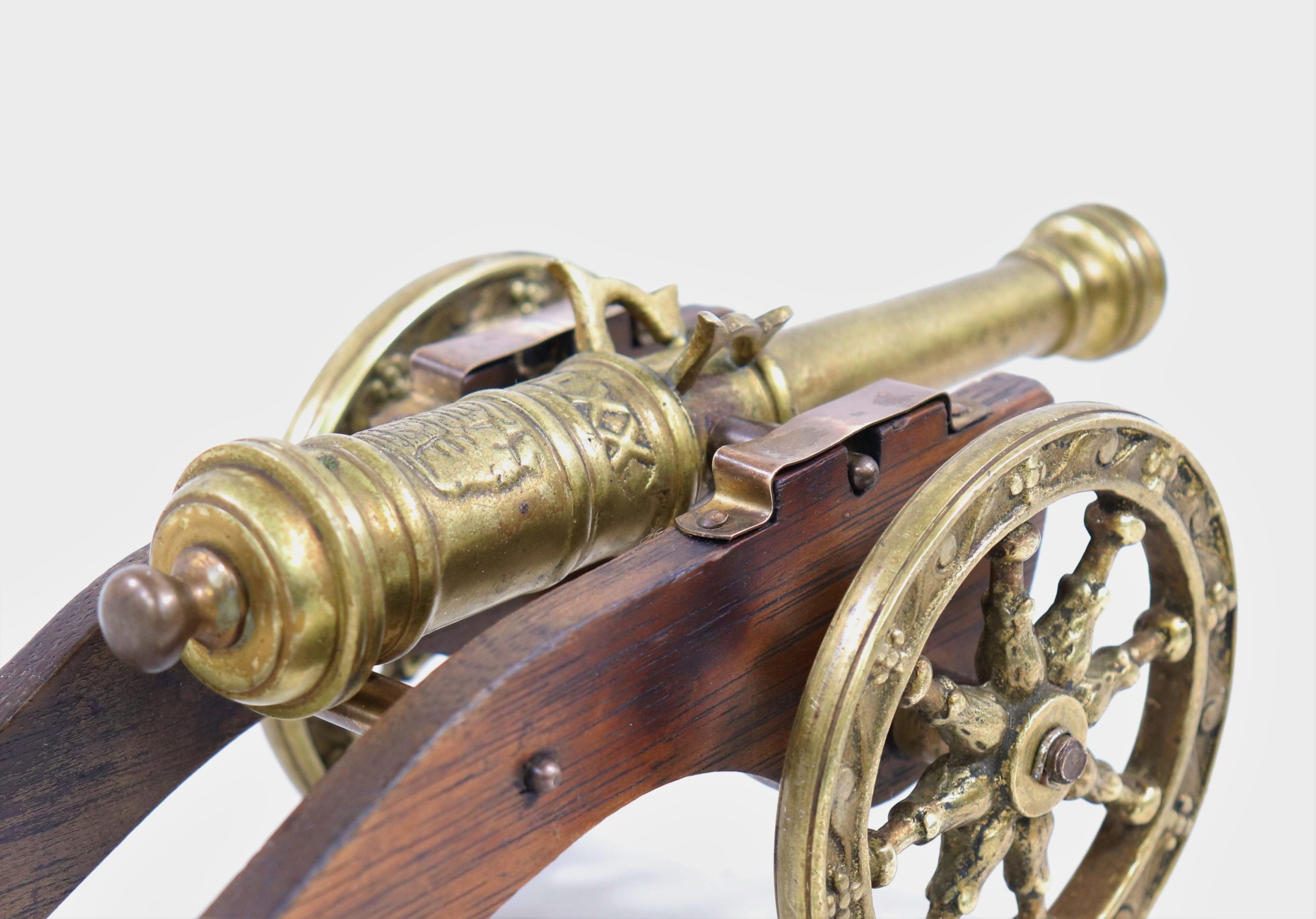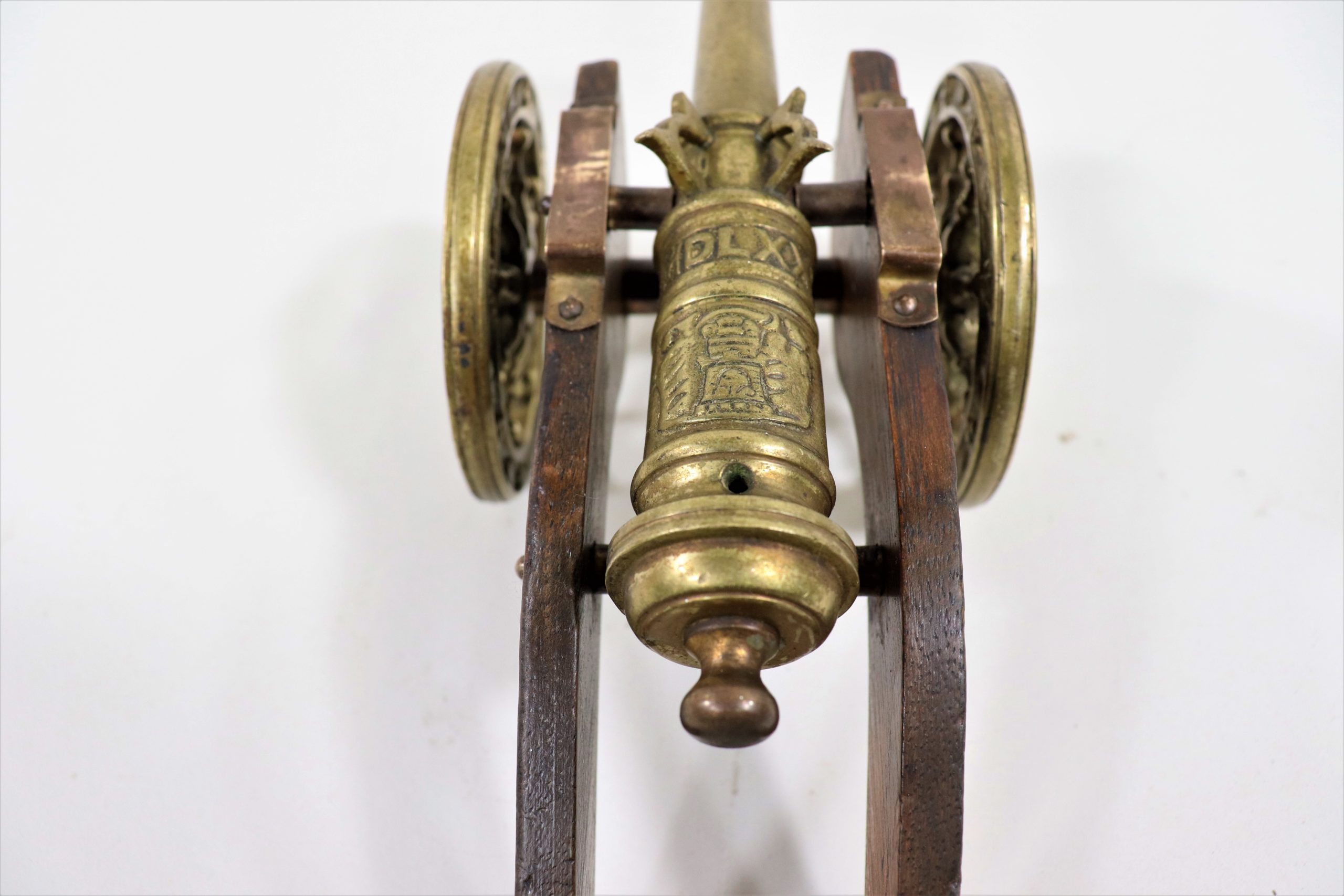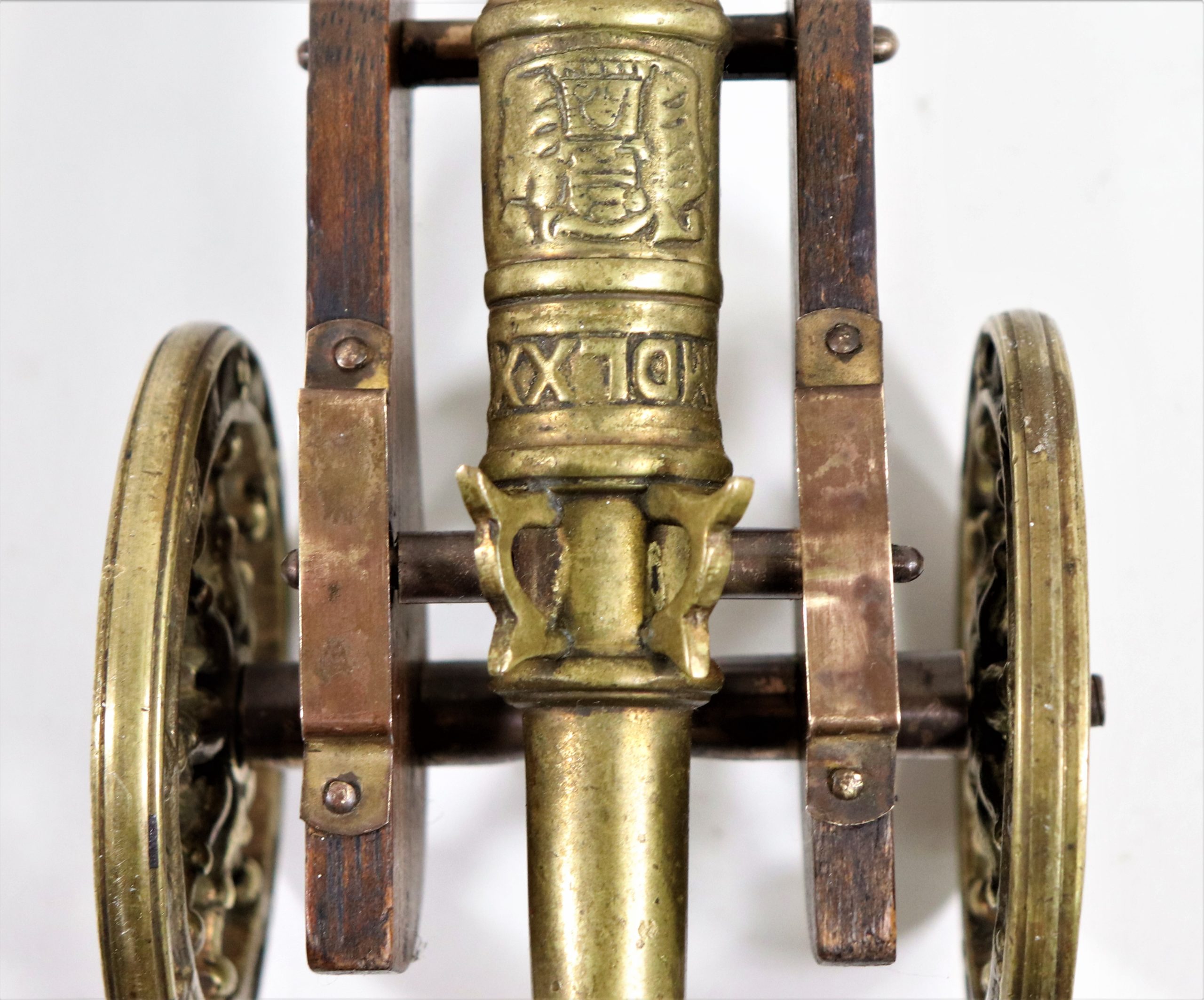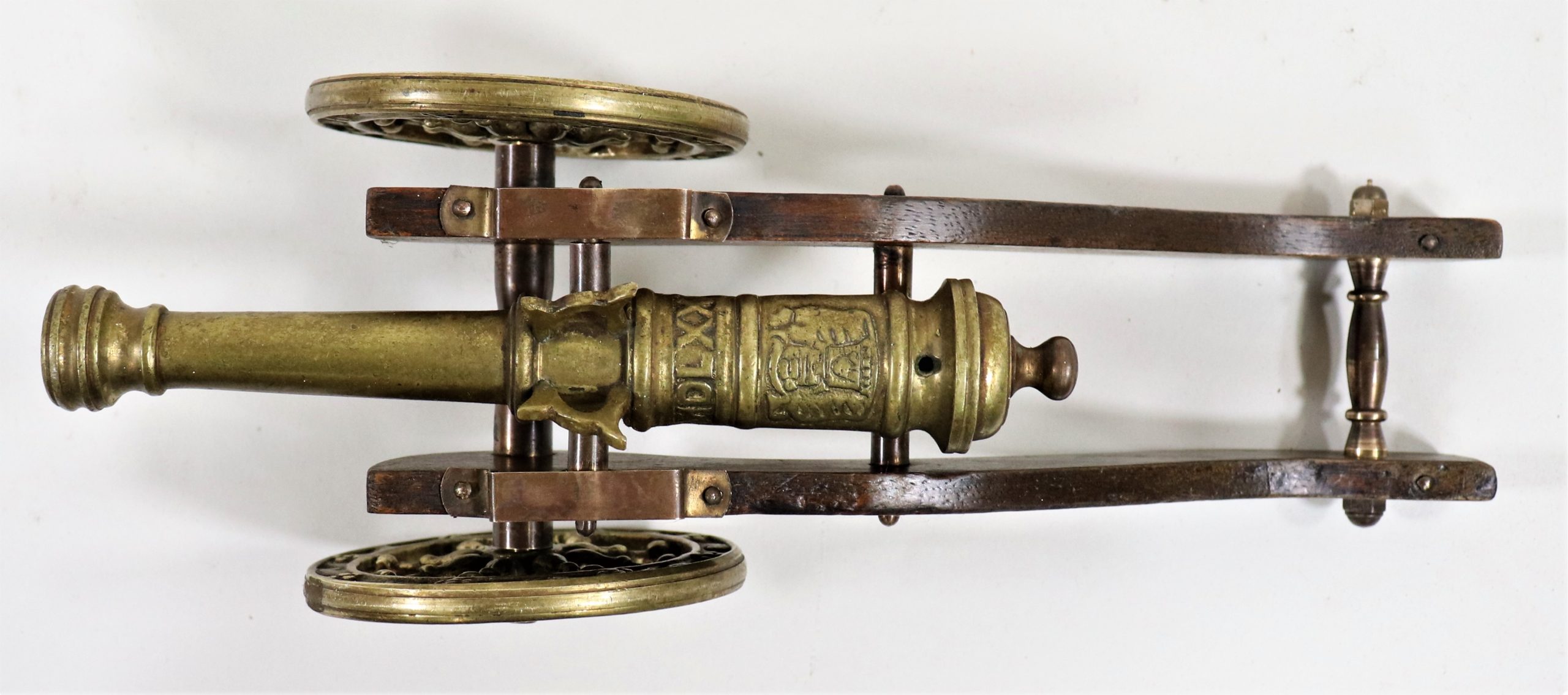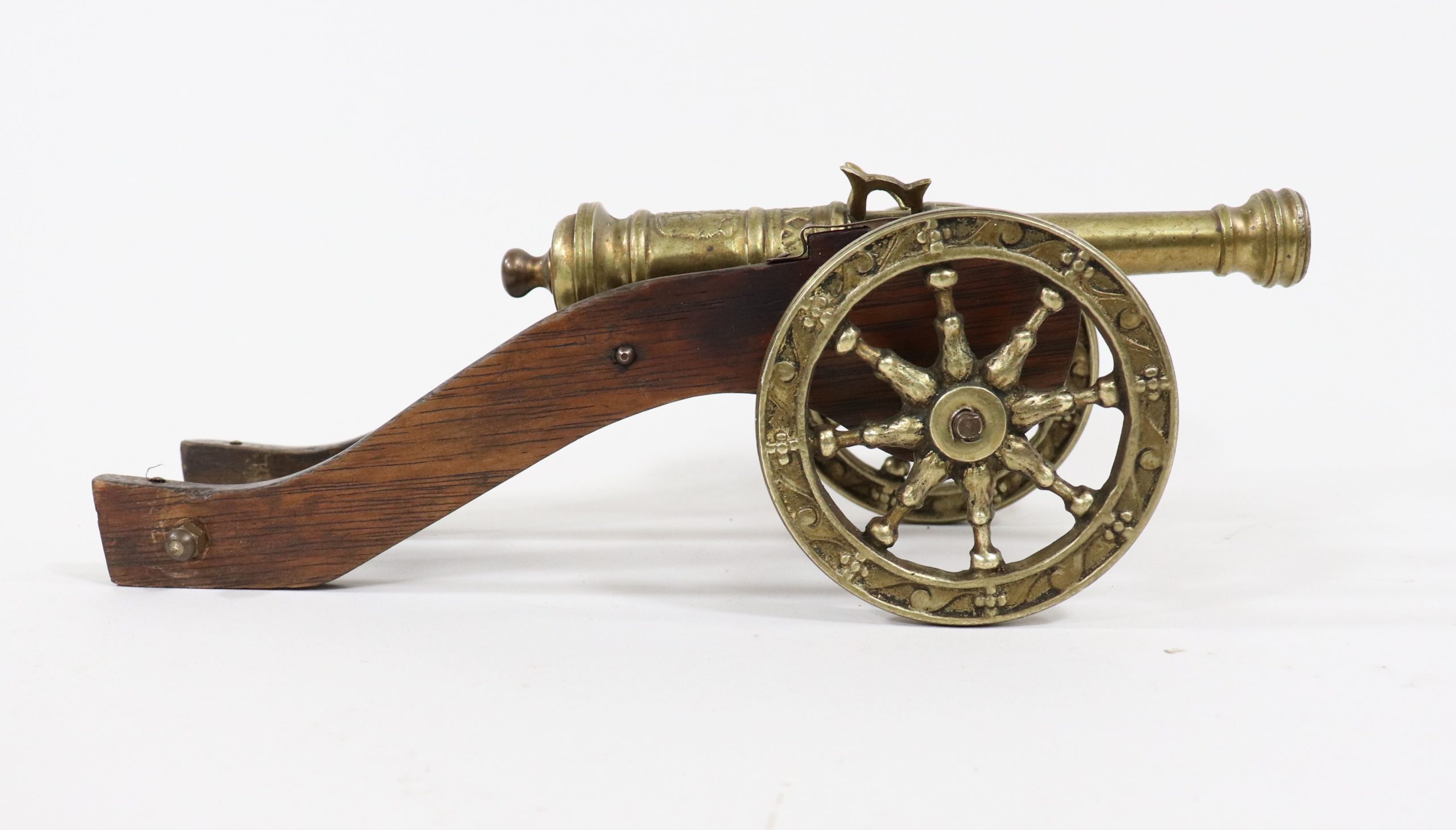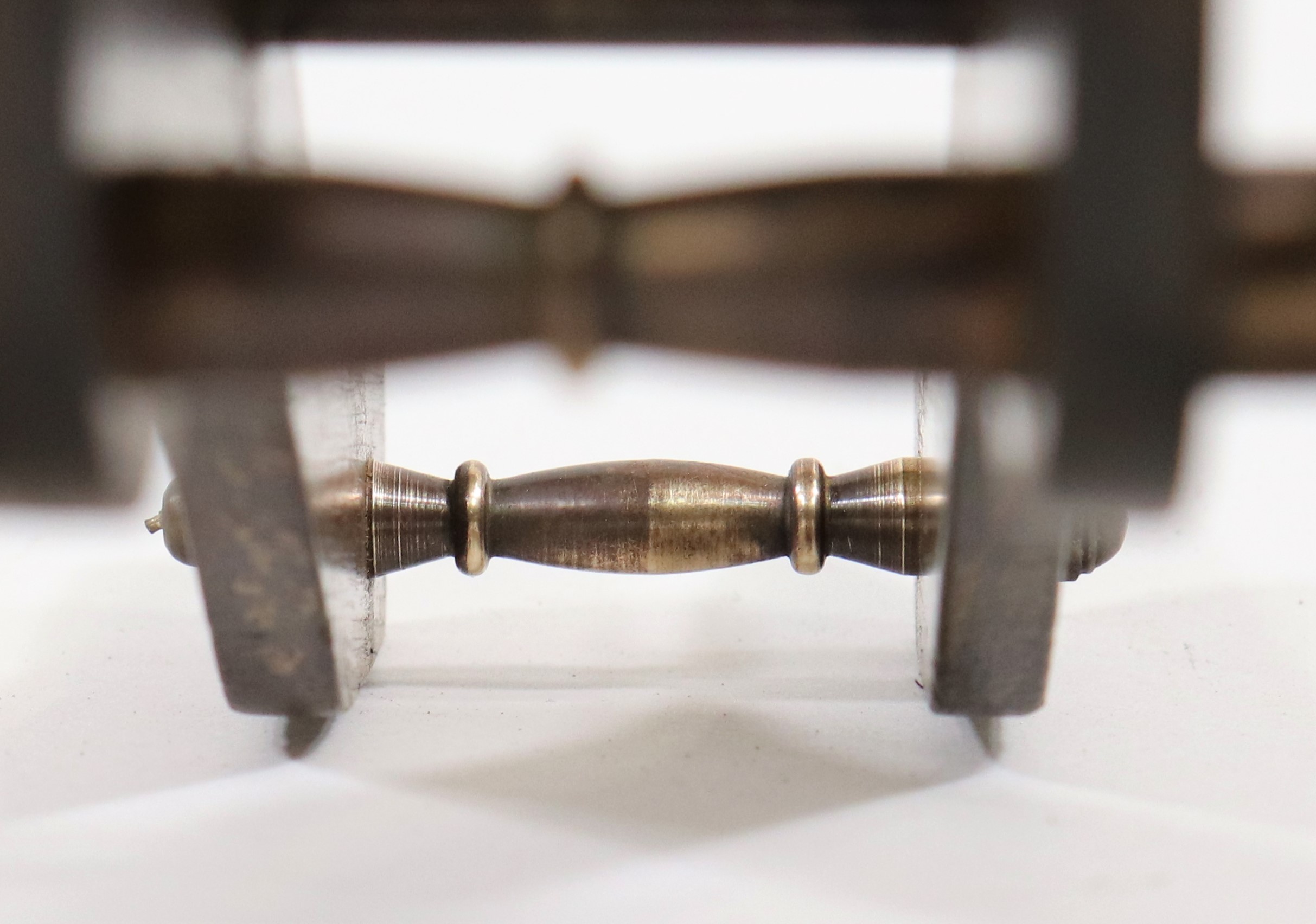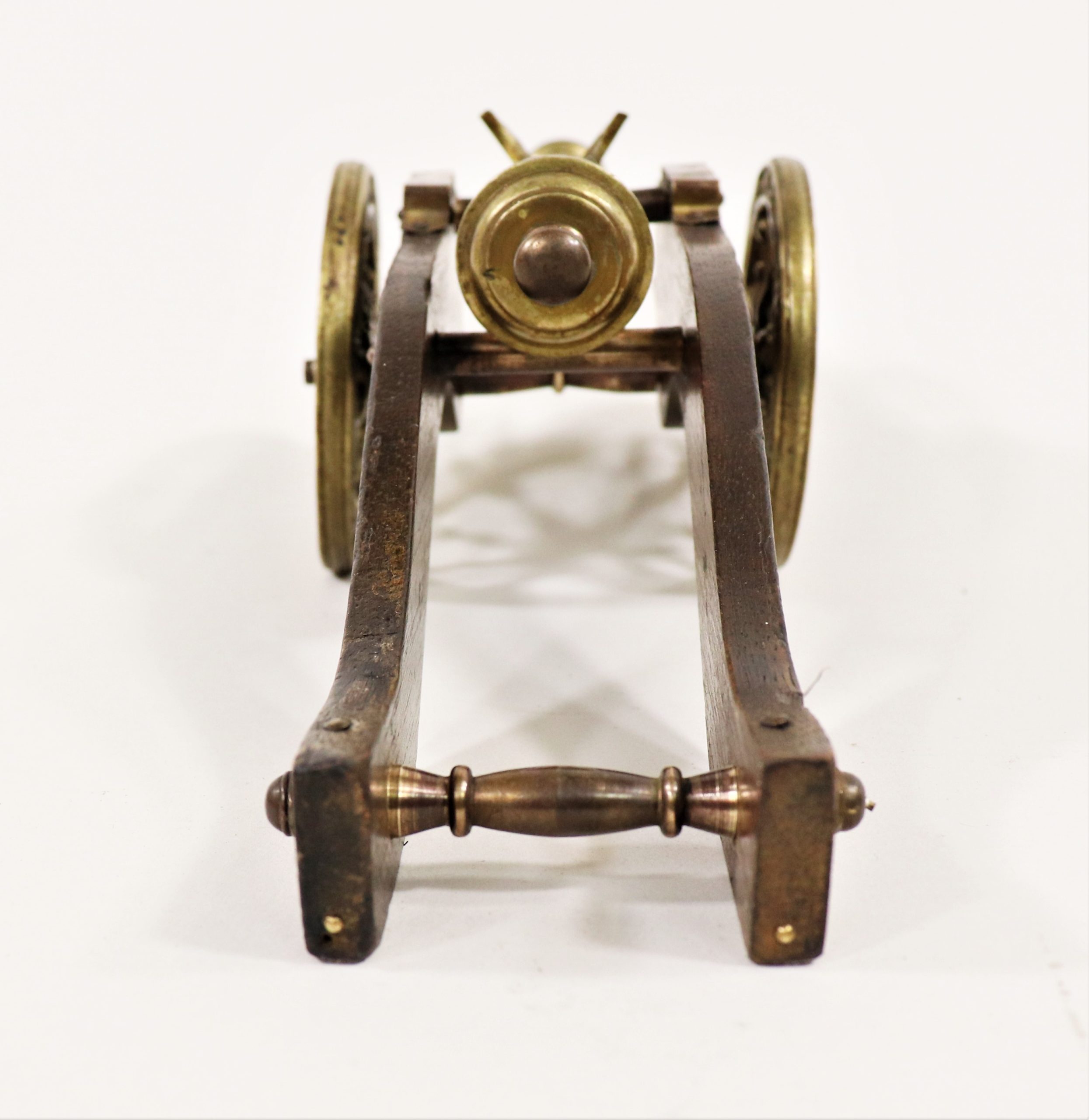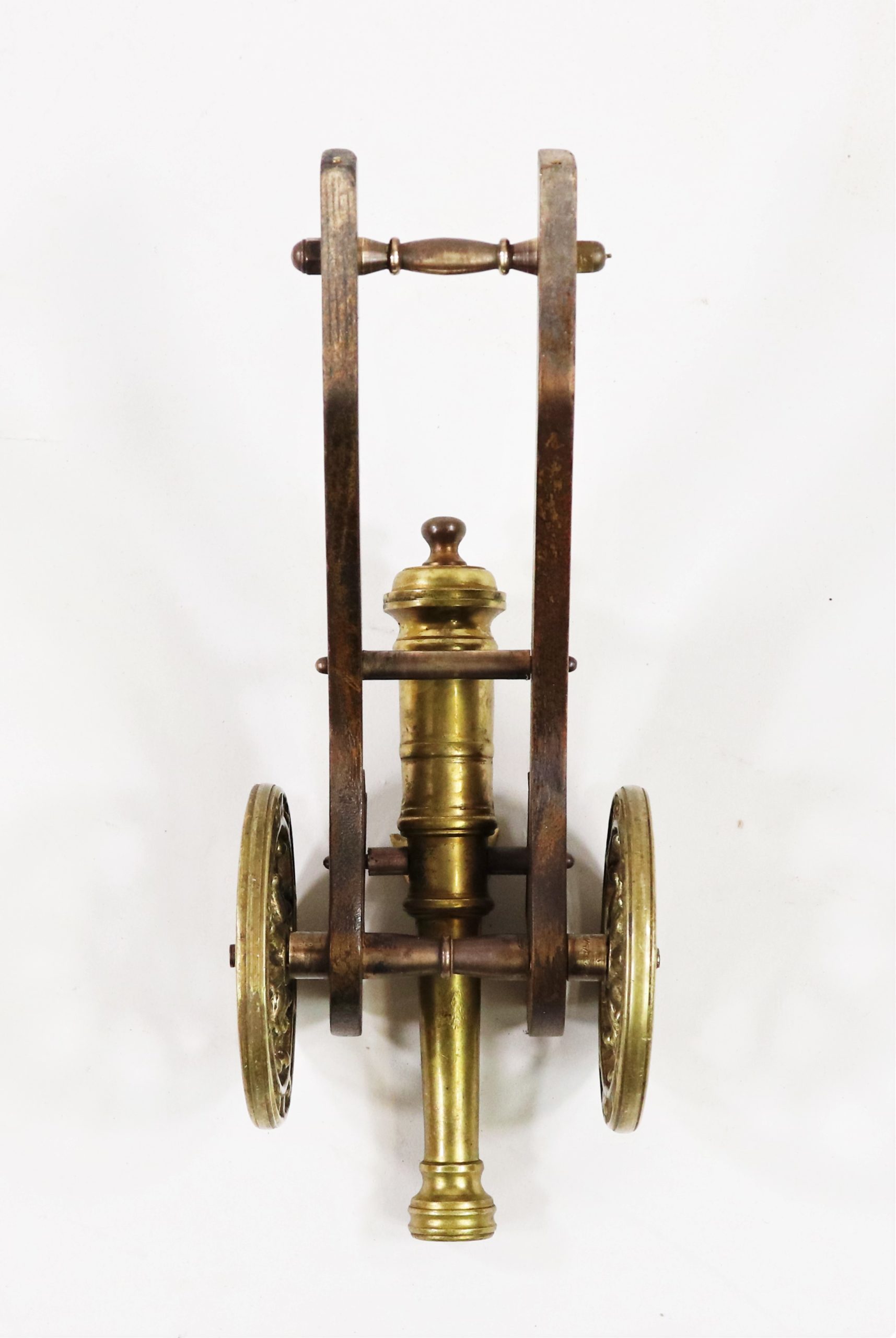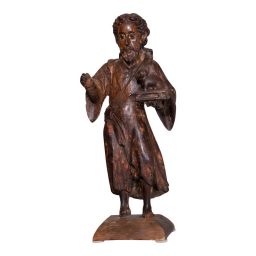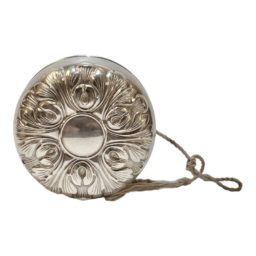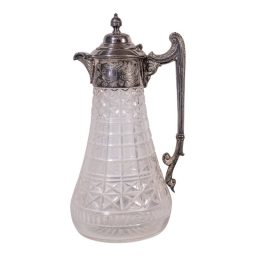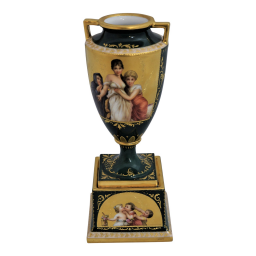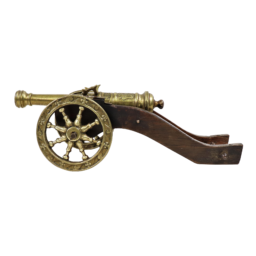Description
Signal cannons, also referred to as salute cannons, typically measure less than two feet in length. They first originated in the East Indies in the sixteenth century and eventually grew popular in England for sport or to commemorate important battles. As their name suggests, these miniatures were used abroad on ships and on land to salute or warn others of danger, and to attract attention in case of emergency. These cannons also provided a form of amusement: cannon fire could signal the thrilling start of yacht races, or even alone comprise rousing contests. Men would compete for their personal cannons against others and then judge who fired the furthest. This nineteenth-century British miniature is beautifully engraved with a date, the year DLXX (570 A.D.) This suggests that this cannon may have commemorated one of the earliest recorded English battles. Fought in 571 A.D., the Battle of Bedcanford involved the Anglo-Saxons, headed by King Cuthwulf, against bands of West Saxons. The conflict was resolved in a key Anglo-Saxon victory in the settlement of Britain, Cuthwulf and his forces acquiring Aylesbury, Benson, Eynsham, and Limbury. A century later, their efforts led to the establishment of an early Anglo-Saxon king, Wuffa of East Anglia. Perhaps once fired in friendly games among gentleman historians, this signal cannon could now make a stirring addition to a gentleman’s den or clubroom.
